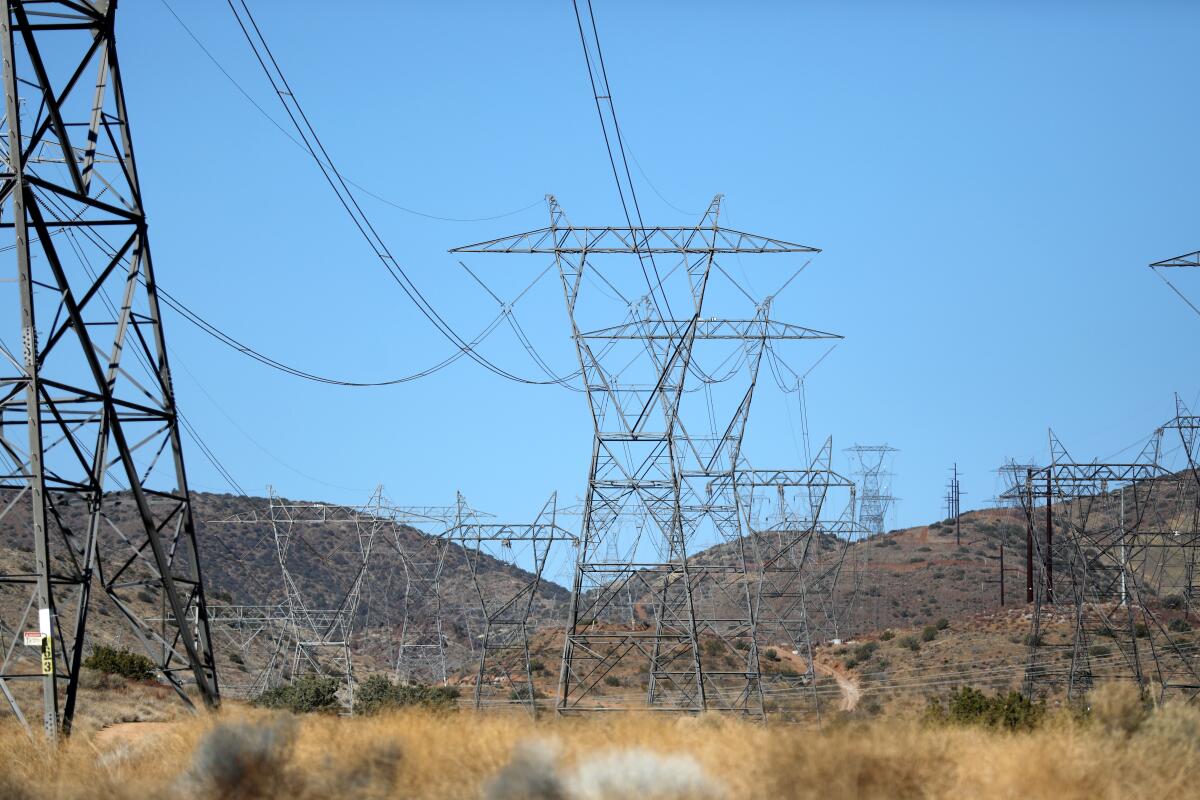Letters to the Editor: It’s way too easy to waste energy. So, charge the highest electricity users a lot more

- Share via
To the editor: The end user should always pay for climate solutions, but it’s crucial they get accurate cost signals to determine which sources of energy to use and how much. (“Who should pay for climate solutions? The debate is heating up,” column, Feb. 8)
In the U.S., the external costs of burning fossil fuels such as air pollution and worsening climate change are not included in the price. This results in people wasting a lot of energy.
If utilities need money for operations, they can easily get it by adjusting their tiered rates. With three tiers, you can give low-income folks a break with 500 kilowatt hours priced at 12 cents apiece, then Tier 2 would be another 500 kWh for 25 cents, and then adjust Tier 3 high enough to hit your needed budget numbers.
This is the fairest method for ensuring there’s enough money to make the transition to clean energy, since only people who waste energy will be hurt and people who conserve will benefit.
Paul Scott, Santa Monica
..
To the editor: I believe a fixed infrastructure charge for electricity based on a home’s square footage instead of household income would solve the disparity problem. There would be no need for invasive tax returns. Square footage is in the public record.
Gale Jaffe, Los Angeles
..
To the editor: The amount of climate pollution one spews is directly proportional to the amount of energy consumed. So, one should pay an exponentially higher rate for energy, not a fee for infrastructure. This would be an incentive to consume less electric energy.
Rooftop solar plus storage potentially could supply 80% of California’s energy needs, which would obviate the need for more transmission lines and increase the reliability of the grid — and at no cost to the ratepayer.
If you go into a pizza parlor, should you pay more for a pizza because you earn more? Wealth is irrelevant. What is relevant is reducing carbon emissions.
Gregg Ferry, Carlsbad




